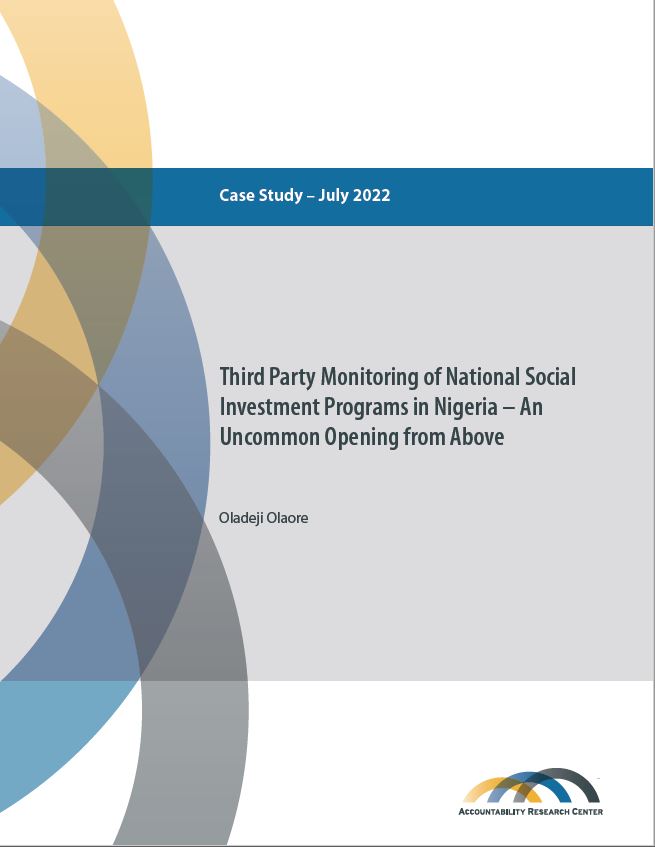
Third Party Monitoring of National Social Investment Programs in Nigeria - An Uncommon Opening from Above
Date: July 2022
Author(s): Oladeji Olaore
Publication type:
Published by: Accountability Research Center
“Sandwich strategies” are interactive processes in which reformers in government take tangible measures that reduce the risks of citizen action from below, driving virtuous circles of mutual empowerment between pro-accountability actors in state and society. This case study is one of a set of 18 published here, which are among those included in comparative analyses of whether and how sandwich strategy initiatives drive institutional change. Social protection programs in Nigeria have been characterized by poor implementation, ineffective monitoring and evaluation, and little accountability. This case study discusses a rare opportunity provided by the government in 2018, for third-party civil society monitoring of the National Social Investment Programme. Policy reformers leading the program collaborated with an international CSO to recruit national CSOs to lead monitoring at the state level, together with local community-based organizations. Broad-based national membership organizations participated, as well as journalists, and community and faith leaders. Political support from the vice president overcame opposition to independent oversight within the cabinet. CSO watchdogs were provided with recognition, access, and resources for transportation. They identified operational problems and corruption, and when influential elites criticized the program, backed it up by publicizing evidence of progress. Monitoring was carried out in 2018 and reached more than one third of local government areas in 21 states (of 36). The vice president’s support—first a strength—turned into a vulnerability. After the 2019 elections, rivals in the cabinet moved the program to a ministry beyond his reach. The government stopped paying third party monitors and CSO policy recommendations to strengthen oversight were not taken up.
